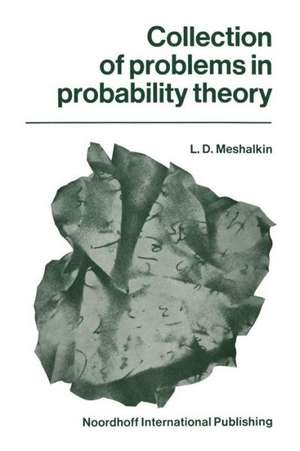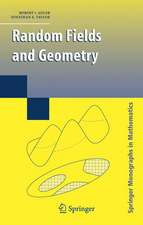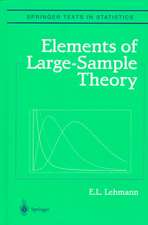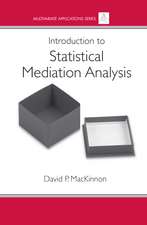Collection of problems in probability theory
Autor L.D. Meshalkinen Limba Engleză Paperback – 9 oct 2011
Preț: 379.86 lei
Nou
Puncte Express: 570
Preț estimativ în valută:
72.72€ • 74.83$ • 61.30£
72.72€ • 74.83$ • 61.30£
Carte tipărită la comandă
Livrare economică 01-15 martie
Preluare comenzi: 021 569.72.76
Specificații
ISBN-13: 9789401023603
ISBN-10: 9401023603
Pagini: 160
Ilustrații: X, 148 p.
Dimensiuni: 152 x 229 x 8 mm
Greutate: 0.22 kg
Ediția:Softcover reprint of the original 1st ed. 1973
Editura: SPRINGER NETHERLANDS
Colecția Springer
Locul publicării:Dordrecht, Netherlands
ISBN-10: 9401023603
Pagini: 160
Ilustrații: X, 148 p.
Dimensiuni: 152 x 229 x 8 mm
Greutate: 0.22 kg
Ediția:Softcover reprint of the original 1st ed. 1973
Editura: SPRINGER NETHERLANDS
Colecția Springer
Locul publicării:Dordrecht, Netherlands
Public țintă
ResearchCuprins
1 Fundamental concepts.- 1.1 Field of events.- 1.2 Interrelationships among cardinalities of sets.- 1.3 Definition of probability.- 1.4 Classical definition of probability. Combinatorics.- 1.5 Simplest problems on arrangements.- 1.6 Geometric probability.- 1.7 Metrization and ordering of sets.- 2 Application of the basic formulas.- 2.1 Conditional probability. Independence.- 2.2 Discrete distributions: binomial, multinomial, geometric, hypergeometric.- 2.3 Continuous distributions.- 2.4 Application of the formula for total probability.- 2.5 The probability of the sum of events.- 2.6 Setting up equations with the aid of the formula for total probability.- 3 Random variables and their properties.- 3.1 Calculation of mathematical expectations and dispersion.- 3.2 Distribution functions.- 3.3 Correlation coefficient.- 3.4 Chebyshev’s inequality.- 3.5 Distribution functions of random variables.- 3.6 Entropy and information.- 4 Basic limit theorems.- 4.1 The de Moivre-Laplace and Poisson theorems.- 4.2 Law of Large Numbers and convergence in probability.- 4.3 Central Limit Theorem.- 5 Characteristic and generating functions.- 5.1 Calculation of characteristic and generating functions.- 5.2 Connection with properties of a distribution.- 5.3 Use of the c.f. and g.f. to prove the limit theorems.- 5.4 Properties of c.f.’s and g.f.’s.- 5.5 Solution of problems with the aid of c.f.’s and g.f.’s.- 6 Application of measure theory.- 6.1 Measurability.- 6.2 Various concepts of convergence.- 6.3 Series of independent random variables.- 6.4 Strong law of large numbers and the iterated logarithm law.- 6.5 Conditional probabilities and conditional mathematical expectations.- 7 Infinitely divisible distributions. Normal law. Multidimensional distributions.- 7.1 Infinitelydivisible distributions.- 7.2 The normal distribution.- 7.3 Multidimensional distributions.- 8 Markov chains.- 8.1 Definition and examples. Transition probability matrix.- 8.2 Classification of states. Ergodicity.- 8.3 The distribution of random variables defined on a Markov chain.- Answers.- Suggested reading.













